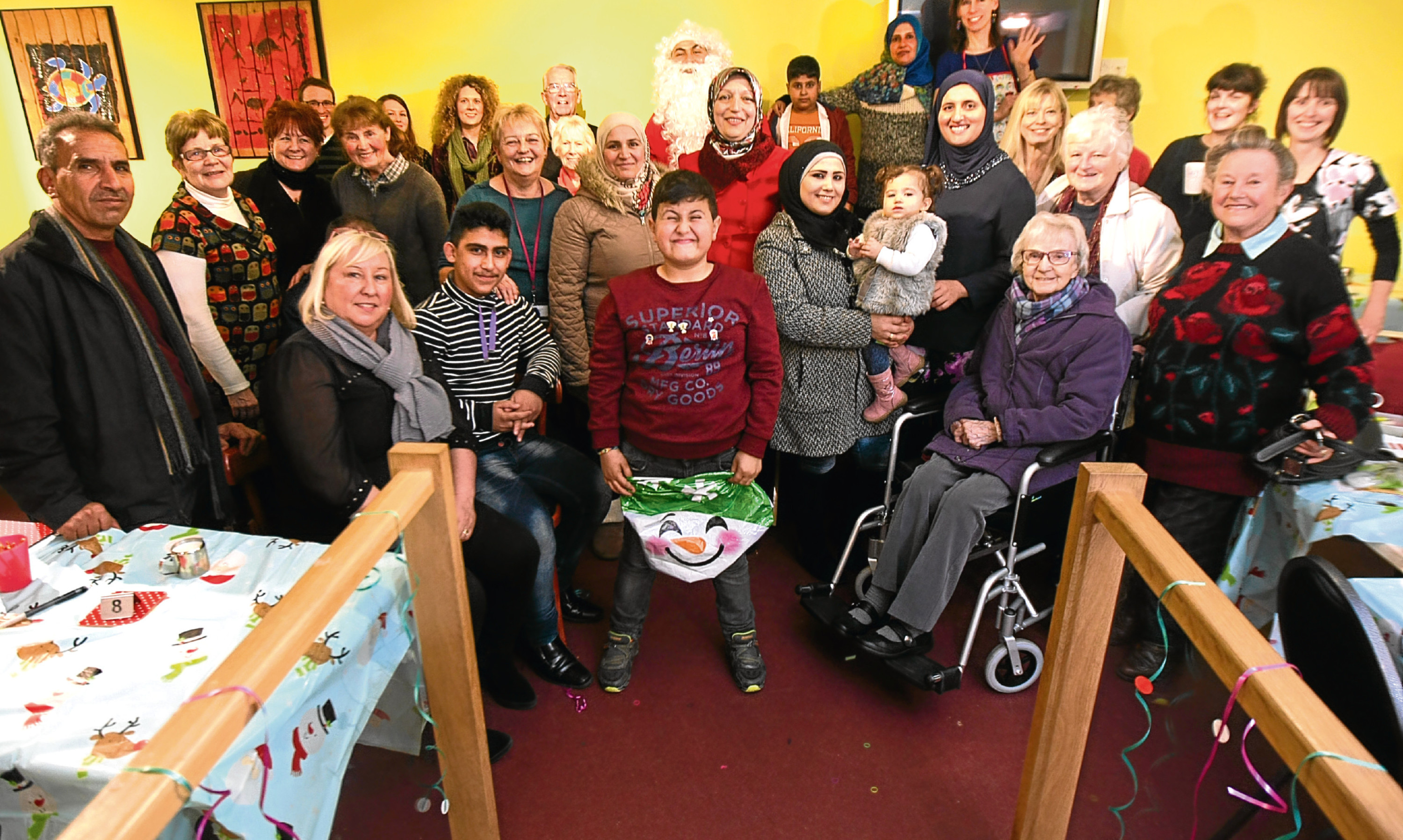There was happiness in the room as we mourned our neighbour.
She lived in the flat above ours on the stair and was the matriarch of the tenement.
You’d go into her place only to find another neighbour helping her fix something or passing the time over espresso and limoncello, listening to her stories about the street.
The flat became crowded for the wake, a mix of family, friends and faces from the neighbourhood.
She had lived in the same place for 50 years – when we’d learned this, there was talk of a special party to mark the half-century but death beat us to the punchbowl.
She’d tell the story of how her husband had come across from southern Italy with a suitcase of possessions.
How he found work in the Italian community and how the first lot of savings were stolen by some unscrupulous colleague but enough was pulled together for her to join her man in Scotland.
From then on it was high tales of the other families, memories of the abject poverty back home, stories about neighbours.
I’m sure I heard ladies in the cathedral talking about who had first slept with who in the old days, when Italians stuck together in their adopted land. Hers is one of the memorable stories of recent times, as important as the big political upsets for me, because of what her life says about our country.
Will anyone ever again buy a flat and stay in it for 50 years? I doubt it – we don’t stay put and no longer buy homes but invest in property, in the hope it will pay our pension.
Thankfully, there is no need for Italians to emigrate and the old joke about the sucker who confused Glasgow for New York will soon be forgotten by generations who have no folk memory of European poverty.
Maybe even the tenement matriarch is dying out too, a result of our more restless lives and colder feelings towards our neighbours.
The Scotland of the last 70 years is slowly disappearing but the value of home is as important now as ever.
We struggle to build homes for all people – a puzzling policy failure and a reminder that even in rich societies the problem of poverty and neglect is not gone.
We are tolerant of the idea of home being in more than one place – a belonging to both Italy and Scotland, or whichever various identity and countries lay claim to our hearts.
This reflects a greater acceptance of private lives; the forces of identity and desire which swirl within all of us are not for political gain but part of the confusing, rich business of living.
Yet there is a sadness too in the death of this wonderful women, a sadness that the ability to offer her a new home in our country is no longer so tolerated.
My neighbour was an economic migrant who arrived in the 1960s.
She worked hard, had a family and now there are three generations adding to the life and economy of Scotland.
Mention economic migrants today and the reaction is often negative. Even refugees fleeing war are treated with scepticism.
The enduring horror of the Syrian war rages a thousand or so miles from Scotland and we do not offer sanctuary to those caught up in the terror.
We can’t even muster much love for people who look like us and worship like us and drink like us – once Brexit is done, the large Polish community may leave.
My neighbour must have known hate when in Scotland – she spoke with a thick accent, looked darker than the average – but never once told a bad story about her adopted land.
She did as we all must do, got on with what she had and made the best of it, as most of us would – work hard, contribute, stay kind.
As the vast majority of economic migrants and refugees do to this day – because the basics of being human don’t change from century to century, or place to place.
And as the people of Berlin mourn the dead from the pointless act of violence of driving a truck into a crowd – to say what, to prove what? – most new Germans will be trying to make the best of their new home and regretting the folly of one fanatic.
As most of us find in this holiday, whether religious or not, that our minds turn to home, kindness and the hope of better things.
Of how a life like my neighbour’s can enrich so many other lives, can add to the happiness of the everyday and can become a vital part of a community.
She made a home, gave a home to her children, added to the sense of home for her neighbours and that place was made up of differences.
There was happiness in the room on the sad occasion of her death, because we had been lucky to know her and to know she had a good life.
May that sense of home be with us all – Happy Christmas.
